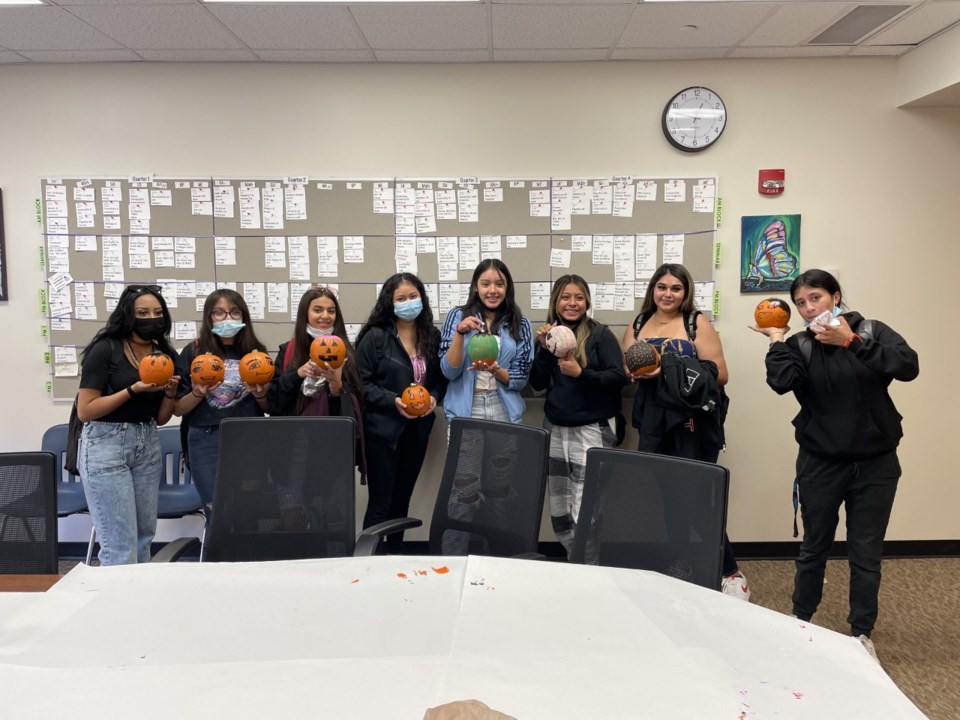Coming up on 100 years of service, YWCA Boulder County isn’t slowing down on its mission to empower women, educate young children and eliminate racism.
Led by CEO Debbie Pope, Director of Equity and Engagement Shiquita Yarbrough and their team, YWCA Boulder County strives to meet the needs of women and girls throughout the area — particularly young women of color.
Empowerment is the key to the YWCA’s programs, according to Pope, giving young women, children and people of color an opportunity to succeed with some extra support and education. The opportunities start early for families of young children.
One of the earliest roles of the YWCA in Boulder County was providing housing and childcare for families in need, dating back to 1922. The program has since evolved into early childhood education, combined with flexible childcare options for working parents, called Persimmon Early Learning.
From that work came bilingual parenting classes, including a skills course on early childhood and financial literacy courses to help families invest in themselves.
From empowering working parents, YWCA is also working to empower young women of color. Latina Achievement Support, or LAS, is bringing bilingual college-aged mentors to Boulder high schools to support Latina students. The mentors work with the students and encourage them to pursue academic goals and explore post-secondary education and career paths.
Tiffany Blanchet moved to Colorado from Texas a few months ago, studying linguistics and computational language in the Master’s Program at University of Colorado-Boulder. Blanchet found the YWCA’s LAS program before she moved to the state and was eager to apply when she arrived.
Growing up in Texas, Blanchet said she knew the struggles of being a first-generation student. She remembered vividly when her parents told her if she couldn’t find scholarships, she should skip college and just get a job.
Seeing the LAS program and YWCA’s STEM program for young women of color, Blanchet said it was like it was designed for “her past self,” a young Latina woman in need of support. Getting involved was an opportunity to pay it forward and encourage young women like herself, Blanchet said.
The opportunity to see other women of color in STEM fields is vital, Yarbrough said. Providing young women the choice to decide whether or not they are interested in science or coding in spaces without intimidation is equally as important, she added.
“We push really hard to make sure we introduce these programs to as many young women as possible to empower them,” Yarbrough said.
The STEM program introduces girls from fifth to eighth grades in schools throughout Boulder Country to computer programming, along with other opportunities for education and leadership in camps and cohorts before high school. The STEM ambassadors in the program have been through the coding cohorts and camps, Pope said, and are now mentoring their peers.
YWCA partnered with the St. Vrain Valley School District’s Innovation Center over the summer for a virtual introductory programming camp, Pope said. Out of that initial collaboration, 25 girls from Longmont are now participating in a seven-week coding camp through the YWCA in collaboration with the Longmont Youth Center.
Recognizing areas like STEM where people of color need more opportunities for education and career is a large part of YWCA’s work to eliminate systemic racism, Pope explained. Beyond developing support systems, YWCA also offers training for individuals and organizations who seek a better understanding of racism in the modern era.
Pope has seen the community evolving, she said, particularly when it comes to critical examination of Boulder, Longmont and Boulder County and the conversation around justice and equity.
“We live in this incredibly beautiful place but there are many things in our community that aren’t creating an equitable and welcoming space for everyone that lives here,” Pope said. “I think that was something people didn’t want to talk about as much.”
Referencing the pandemic and national conversations on racial justice — particularly with the deaths of George Floyd and Elijah McCain — Pope saw an evolution in the Boulder County community’s willingness to learn more and speak out. Pope and Yarbrough worked together to create a series of seminars and workshops on how to be anti-racist in answer to community need.
“We felt like it was very successful in getting the conversation going about what happened with George Floyd and across the nation,” Yarbrough said. “We know people were having a difficult time communicating how they felt about what was going on within their own families and peers.”



